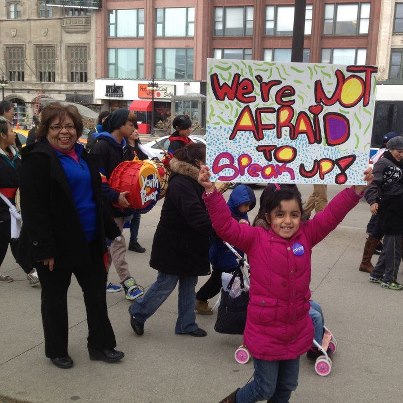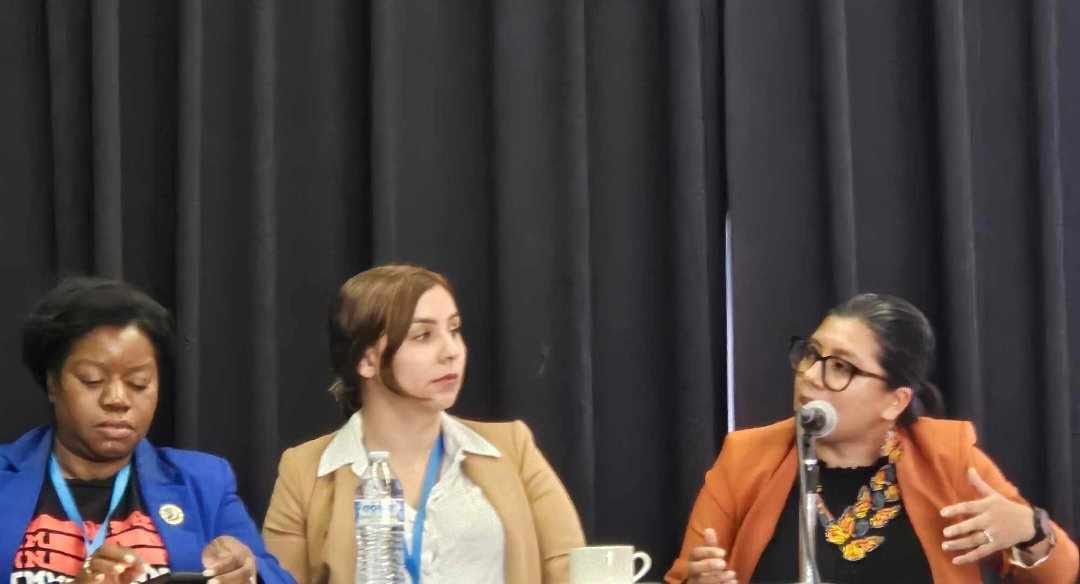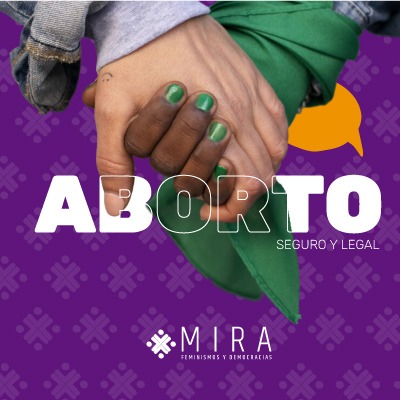
Six years ago, Yolanda Zorayda Avila would have considered herself among the least likely of people to be organizing opportunities for immigrants to meet with Congressional leadership.
“I didn’t believe in that type of work. It’s not the way things are done in my country,” said Avila, who moved to Chicago from Michoacán, Mexico in 2007 and is now Program Director with the Federación de Clubes Michoacanos en Illinois (FEDECMI). “[Mexican] legislators don’t receive [public visitors].”
But in working to change the hearts of U.S. legislators around the issue of immigration reform, Avila Toledo has also had a change of heart. She now believes legislative meetings are “very effective,” having helped plan them over the past weeks.
Avila’s community organizing effort is one of many that are taking place in streets, neighborhoods, and offices throughout Chicago.
Immigration reform has returned to center stage, sparked by President Obama’s announcement of Deferred Action for Childhood Arrivals last August, heightened by interest in Latino voters following the November election, and brought to a near-climax with anticipation over a pending immigration bill from a group of Senators known as the “Gang of 8”. Avila describes a feeling of “happiness and hope” among immigrant communities, a spirit that has driven them to renew organizing efforts this spring, calling for an immediate halt to deportations and attention to the broader goals of immigration reform. The latest Chicago actions coincided with Congress’ two-week Easter Recess and other organizing taking place across the country, where people took their case to representatives back in their districts for the break.
Avila explains that there was a lull when little changed following the immigration marches held across the country in 2006 and 2007. “People said, ‘Why bother?’ ‘Nothing is going to happen.’ But the fire has been stoked again. People are looking for ways to help the movement.”
Civil Disobedience
The Gang of 8 had promised to deliver their much-anticipated immigration bill by March 21, ahead of the Congressional Easter break. But the bipartisan group missed its self-imposed deadline, prompting advocates affiliated with the Illinois Coalition for Immigrant and Refugee Rights (ICIRR) to organize.
“[The Senators] missed the deadline and people continue to be deported,” said Monica Trevino, communications director with ICIRR. “Our goal was to tell them that actions have consequences.”
ICIRR delivered the message by assembling 75 protesters outside the office of Senator Mark Kirk (R-IL) in downtown Chicago on March 22, one day after the Gang of 8’s missed deadline. Protestors formed a line in the street and refused to move even when police intervened. Nineteen—including three Chicago aldermen—were ticketed for blocking traffic, according to reports.
“The civil disobedience was planned all along as a way to bring attention to immigration [reform],” said Trevino.
While “actions have consequences,” it is inaction that causes heartbreak for immigrants and their families. According to ICIRR, 1,100 immigrants are deported each day, meaning that the Gang of 8’s missed deadline would have resulted in 20,000 deportations over the Congressional recess.
In addition to frustration with the Senate’s delay in delivering legislation, the group expressed concern over another issue: Senator Lindsey Graham’s (R-SC) call to prioritize visas for high-skilled workers over those for siblings and adult children of immigrants. The rally drew a diverse group of protestors, including Asian, African, Muslim and Latino community leaders and clergy from various faiths.
“It was good to see other [diverse] voices out there to talk about immigration reform,” said Trevino. “Asian and African groups are becoming more active. The visa issue will affect them directly.”
ICIRR recognized the act of civil disobedience as a necessary measure in ongoing efforts around immigration reform and issued a statement saying it will “continue to organize, engage in civil disobedience, and lift up the voices of families impacted by our unjust immigration laws until an inclusive bill is put forward.”
Children’s Rally
On March 27, various members of the Gang of 8, speaking at a press conference along the Arizona-Mexico border, said they were confident that they would deliver legislation in early April. (More recent reports indicate a mid-April delivery date.)
“We’re 90 percent there,” Senator Charles Schumer (D-NY) told Reuters on March 27.
But the more than 500 people assembled in Chicago’s Federal Plaza that same day—many of them children participating in their first organized action—were unwilling to give the Senators an extension on their deadline.
“Listen to me very carefully and do not ignore me: The time is now to pass immigration reform!”
The strong statement was attached to a small voice: that of 9-year-old Liz Marquez, a young volunteer with the West Suburban Action Project, based in suburban Melrose Park, IL and affiliated with ICIRR. As was the case for many of her young peers, the day marked Liz’s public speaking debut.
“My dad has a deportation order, and I worry every day that they will try to separate him from us,” Liz told the crowd. “This would affect me a lot because my dad and mom take very good care of us. My parents are hardworking people who love us very much. My parents are not criminals and should not be treated like that.” (See Liz in action in a video posted by the Chicago Tribune.)
Liz represents the children of immigrants with much to lose over Congressional inaction on immigration reform: More than 200,000 immigrant parents of US-born children have been deported over the past two years, placing more than 5,100 children in foster homes, according analysis done by Color Lines.
“We wanted to share the human face of immigration reform, to raise awareness that there are children being directly deported and also US-born children with undocumented parents being affected,” said Trevino.
Communication from West Suburban Action Project, known as PASO in Spanish, expresses the frustration and heartbreak of immigrants and advocates: “As you share with your family over Easter Sunday, please keep in your thoughts and prayers all the families who will not be able to sit together and enjoy a dinner because they have been separated by our broken immigration system.”
“Lifting Latino Voices”
While ICIRR members took to Chicago’s downtown to demand that the Senate keep its promises on timely legislation, members of the National Alliance of Latin American and Caribbean Communities (NALACC) traveled to Chicago’s outlying neighborhoods and suburbs to tout a longer-term agenda.
“True comprehensive reform on any given public policy subject is always a long-term goal,” said Oscar Chacón, executive director of NALACC. “[The reform being discussed currently] does not even seek to reform what in our opinion is most broken with current US immigration policy.”
NALACC’s “Lifting Latino Voices, Sharing our Stories” campaign connected members in Chicago, Boston, Los Angeles, Houston, Greenville, NC, Omaha, Miami, New York, and Las Vegas with Congressional members in their local offices. As FEDECMI is a NALACC member, Avila’s organizing efforts were part of the campaign.
“The meetings give us [immigrants] an opportunity to share our perspectives, to let the legislators understand what has been our experience in this country. It also lets us understand how we can help them garner support for our cause,” she said.
NALACC addresses the same core issues of family unity, a halt to deportations, and fair access to citizenship that drove other advocates to the streets last week. And in addition to calling for immediate action, the “Lifting Latino Voices” campaign urges legislators to take a deeper look at the issue.
“What we find when we do Congressional visits is that there is a great deal of ignorance about how our immigration policy is currently structured and how it works. Most people have no clue about the meanness of our current policy,” said Chacón. “What has been proposed so far by way of [pending Gang of 8 legislation] falls far short from what has to be changed if we are to have a truly new, humane, and functional immigration policy.”
NALACC calls for elected officials to approach immigration from a transnational perspective, looking at a need to address the deeper forces of labor supply and demand rather that treating immigration policy as a purely domestic security issue. They also criticize the “outdated, misguided” system of quotas and preferences, and question the punitive policy framework set by 1996’s Illegal Immigration Reform and Responsibility Act (IIRIRA).
NALACC member Claudia Lucero, president of Durango Unido en Chicago, assisted in planning meetings with legislators. She helped participants examine names of Congress members to identify “who is on our side and who will take convincing.” Lucero said she received reports from the delegations that legislators were “very receptive and at least willing to support an immigration reform in general.”
Developing Leaders
NALACC also seeks to educate their own membership, especially in light of renewed community interest in advocacy and organizing.
“When there is a huge publicity wave like the one around the current push for reform, the interest level of our members increases greatly,” said Chacón. “Our work is in getting people to be engaged and at the same time, better equipped to understand the nuances of the immigration policy reform debate.”
NALACC’s Leadership Institute travels throughout the country to help members better understand the current reform environment and develop community organizing, digital media, and—central to NALACC’s recent campaign—critical-thinking skills.
“Our leaders understand that they [don’t have to] be cheer-leading for what the Gang of 8 is proposing,” said Chacón.
Lucero sees community education as being essential to the movement, especially given the renewed interest in activism among community members who may not understand all the ins and outs of reform proposals.
“Not all of the immigrant community is well-informed. It is important that we present opportunities for the community to access information. With or without papers, they’re asking us, ‘How can I get involved? What small part can I play?’”
Reflecting on her own experience as a community advocate, participating in Chicago’s mega-marches in 2007 and planning legislative visits most recently, Avila thinks this latest round of organizing in Chicago could pay off.
“The efforts go hand-in-hand. Big marches help legislators visualize the number of people who are concerned about the issue, the number affected. But the one-on-one-talks help us have a say in the decisions that they’re making.”
She says that the reform movement’s biggest chance for success lies in continued community action.
“There are so many immigrants [in this country]. If we don’t organize, we will continue to be invisible.”
Sara McElmurry works with the Latino Policy Forum, a NALACC member organization. She is a contributor to the CIP Americas Program www.americas.org



